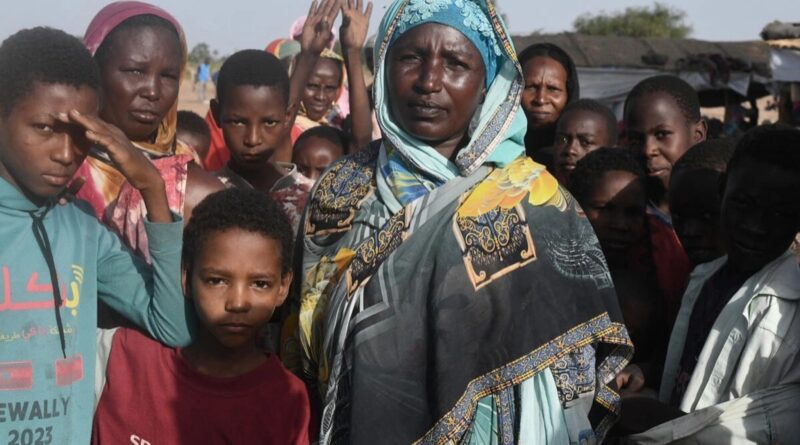Sudan: Refugees are Overwhelming Sudan Border Services Says UN Refugee Agency
GENEVA — After 20 months, there are no signs the war in Sudan is slowing down, and the UN Refugee Agency (UNHCR) warned Friday that the recent surge of arrivals in South Sudan is overwhelming services in border areas.
Volker Türk, the UN Human Rights chief said, “The continuing siege of El Fasher and the relentless fighting are devastating lives every day on a massive scale. This alarming situation cannot continue.
“The Rapid Support Forces must end this horrible siege, and I urge all parties to the conflict to stop attacks on civilians and civilian objects. I call on them to comply with their obligations and commitments under international law.”
UNHCR Representative in South Sudan, Marie-Helene Verney said at a UN press conference in Geneva the humanitarian response to support the sudden influx remains “woefully underfunded,” with only 24% of people’s needs this year received.
“In less than three weeks, over 80,000 people have sought safety in South Sudan following the escalation of fighting in Sudan’s White Nile, Sennar, and Blue Nile States – more than tripling the average number of daily arrivals compared to previous weeks,” said Verney at a UN press conference.
The lack of funding is threatening endeavours to address this new emergency and to significantly support new arrivals and the communities hosting them with the UNHCR, along with 48 partners, needing $468 million in 2025 to support refugees and host communities.
Sudan has been mired by fighting between the army and the paramilitary Rapid Support Forces (RSF) since April 2023, and almost one million people have arrived in South Sudan which has itself in recent times experienced conflicts.
Those fleeing the latest wave of violence in Sudan are not only Sudanese, but also South Sudanese refugees previously living in Sudan’s White Nile State, which had been relatively safe since the conflict started, said the refugee agency official.
“Refugees and returning South Sudanese are staying in makeshift shelters, and some are sheltering under trees,” said Verney.
“MSince the Sudan conflict started in April 2023, almost one million people have arrived in South Sudan which has in recent times experienced its own conflicts.
any are reluctant to move onwards, hoping the security situation improves in Sudan, allowing them to return home swiftly.”
The refugee agency official said that assessments at Joda, the main border crossing between Sudan and South Sudan, show malnutrition rates exceeding the emergency threshold.
Food supplies are critically low, worsening the nutrition situation, particularly for children aged under five, and pregnant and lactating women, said Verney.
“Lack of clean water and insufficient latrines and sanitation facilities are also exacerbating the situation, posing a real risk of the spread of cholera and other deadly diseases. Local health facilities are either limited, overwhelmed, or non-functional,” she noted.

Sign up for free AllAfrica Newsletters
Get the latest in African news delivered straight to your inbox
“There is also a great need for psychosocial support services, as those fleeing recount traumatic experiences that forced them to flee, including aerial bombardments and witnessing mass killings.”
Verney said that in places, people spoke of having to walk for up to two weeks seeking safety, with several in the group reportedly dying during the journey from hunger, dehydration, and exhaustion.
Land is sought for new reception centres and existing transit places are expanding to accelerate registration and relocation to areas hosting refugees countrywide.

